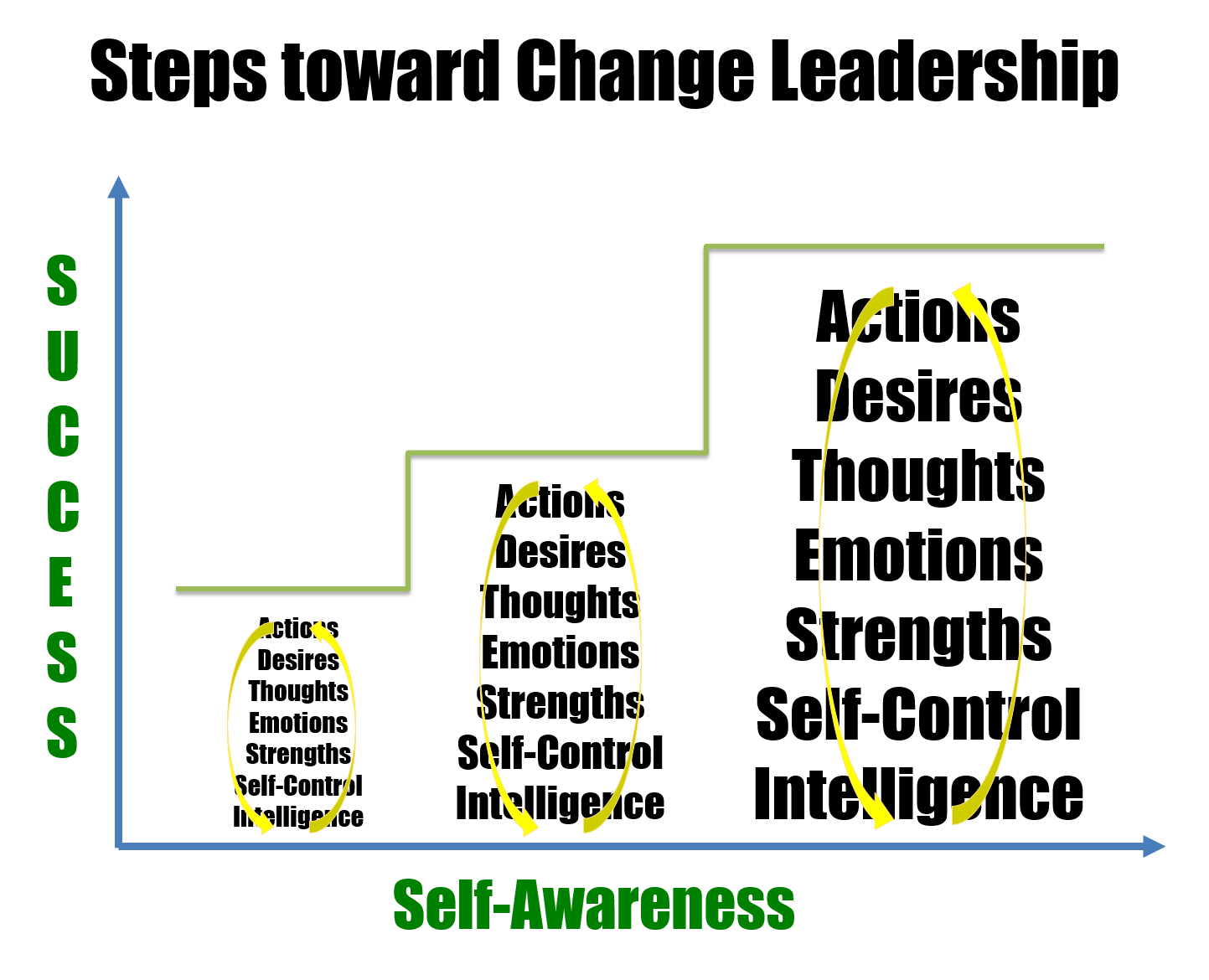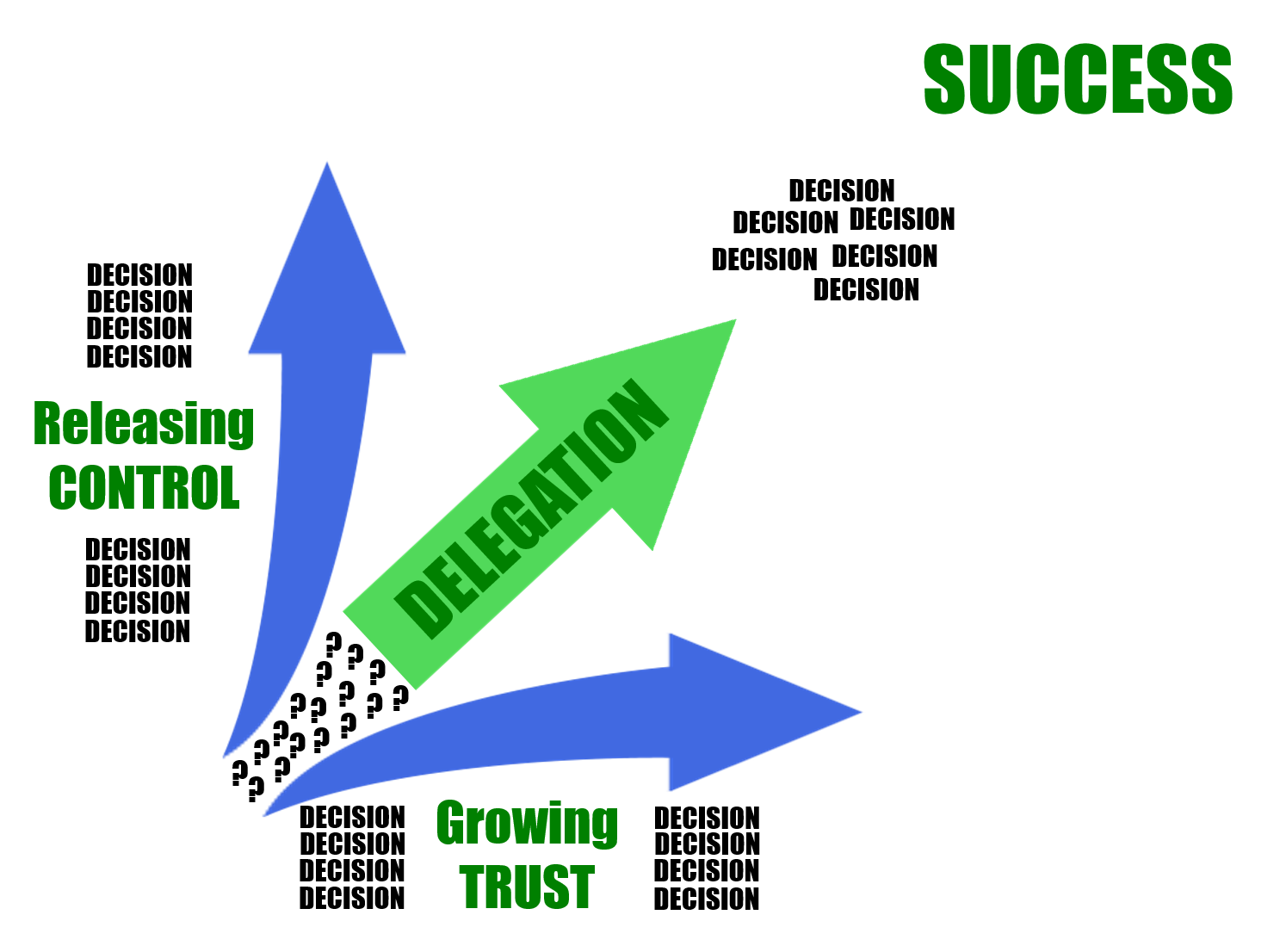|
|
by Rick Baker
On Jan 28, 2014
Vision inspires
Leadership has a few essential ingredients. For example, the leader must possess a level of intelligence and the leader must possess a character that appeals to followers. Another essential ingredient is Vision. Good-to-great leaders hold a long-lasting, vivid image of what they want in their minds and they communicate that message to their followers. Some good-to-great leaders have an innate gift of communication. Other good-to-great leaders learn the art of communication.
Values fuel the right actions
Everyone lives by a set of personal Values, whether or not they are expressed verbally. The greatest of leaders naturally live by their Values in a most consistent manner. And they have a habit of painting verbal pictures around their Values. Good-to-great leaders' thoughts and actions and communications are consistent. This clarity around Values sends a consistent message to followers. The message energizes followers. In this way, the leaders' Values fuel everything.
Goals provide direction
Good-to-great leaders set long-term goals and they set short-term goals...they know the importance of little milestone steps that guide positive actions toward the long-term goal. Good-to-great leaders know the linkage between good habits and long-term goals. Good habits help people achieve their long-term goals whereas bad habits do not. Short-term goals provide the opportunity for testing, doing, failing, learning, and adjusting the next sets of short-term goals and actions.
Intent doesn't go without saying
Good-to-great leaders, when compared to average people/leaders, somehow, do a better job of understanding other people. So, somehow, they do a better job of choosing people whose intentions are more aligned to fit on common ground...rallying around a cause. Some good-to-great leaders possess natural gifts of empathy. Other good-to-great leaders figure out how to read other people and they start the process by sharing discussion of Intentions. When in doubt, they ask.
Stories get remembered
Great leaders are great communicators. They are attuned to their life-experiences and how some of those life-experiences serve as excellent examples that can be shared with other people, followers and others who could be followers in the future. Great leaders create powerful, magnetic stories around these pertinent life-experiences. They practice delivering these stories. Then they use every opportunity to present and repeat the stories...to anyone and everyone who will listen.
by Rick Baker
On Dec 30, 2013
Yes, Covey taught Seek First To Understand.
Good advice!
But, as you follow that advice, do not be confused. In general, people do not understand themselves. Well, they sort of understand themselves...but they really do not understand themselves. The have vague notions about their goals, their deepest desires, their talents & strengths, and many other fundamentally-important things.
You don't agree...
OK.
Prove it.
Prove you understand yourself...
- State your definite purpose in life...your vivid vision
- State your personal values
- State the unique value proposition you bring to the workplace
- State the things you will do that other people will not do
- State what "Integrity" means to you and how you illustrate it
- State how you go about "Influencing" people
- State how you go about building a trusting relationship
- State the things people can rely on you to do 100% of the time
These are just some of the areas where people show others, day after day, they have only a vague understanding of themselves.
Why?
Why do people only have a vague understanding of themselves?
Here are a few of the main reasons:
- Most people think things like, "I don't have time" and "I'm too busy". Even worse, they say these things out loud and share them with other people. With these thoughts and words they proclaim their limitations to the world and they brainwash themselves into hectic lives...lives far too hectic for introspection and self-knowledge.
- Most people have not been taught how to understand themselves. When in school, most people studied math, language, science, history, etc. Most people did not study the mechanisms of self-monitoring, self-analysis, self-knowledge, etc.
- Many, if not most, people choose mind-numbing entertainment over thinking.
Yes - Seek First To Understand.
And, start with self.
by Rick Baker
On Nov 22, 2013
When I was a young boy I had a small group of very close buddies. We played together. We played sports like baseball and football. We fought now and again. And we play-fought all the time. We played pirates. We played Cowboys and Indians. We played army games. Bang, bang…you’re dead.
One Friday afternoon, when I was in Grade 3, our teacher told us the President of the United States had been shot and killed.
I remember walking home with my buddies. Laughing and playing…bang, bang…you’re dead.
When I got home, I headed for the refrigerator and I found my Mom in the kitchen…crying like I had never seen before. I remember that afternoon like it was yesterday. I remember my Mom sobbing, unable to talk clearly. I panicked, not understanding what was wrong. When she could talk she explained she was heartbroken over the death of John Fitzgerald Kennedy, the President of the United States.
I remember exactly how I felt that afternoon, including the joy I had playing with my friends, the panic about my Mom, and the guilt over my ignorance.
Later, I understood why my Mom and all my friends’ Moms cried that day.
That was the day the Vision known as ‘Camelot’ died.
The death of that Vision shook my world and took a big piece of my childish innocence.
by Rick Baker
On Nov 15, 2013
If you want to lead change and influence others to help you achieve the success you desire, consider these things:
- Your Intelligence - This is a tough one! How can you be objective? How can you know whether or not you have the intelligence required to be a successful leader? Here's a few suggestions: (1) view this as a life-long process, work at self-knowledge, & figure out how to measure accurately [then you will be able to apply these things to understanding others], (2) ask for input from others then consider it from different perspectives [as examples, subjectively and objectively], (3) have at least one mentor...intelligence is not fixed - it is something you can expand if you work at it.
- Your Self-Control - There are two dimensions: (1) short-term control over emotions, feelings, thoughts, & actions and (2) 'Grit', the ability to control thoughts and actions so they align with personal Values, Vision, Rules, & Goals. 'Grit', as defined here, is the thing in you that determines whether or not you can illustrate Integrity to others and whether or not you have the conviction required to achieve your Desires.
- Your Emotions - Another tough one! Start by defining Emotions and how they differ from feelings, moods, and other mind states. Seek help from others who can observe you in a variety of Situations: under heavy workload, under stress, under assault [for example, while being criticized]. Assessments can help identify your weaknesses. Major weaknesses must be corrected. If they are not you will violate sacred things like Integrity and your stated Values...violations will destroy followers' Trust in a blink.
- Your Actions - and the Actions you must do to deliver value, lead others, inspire others, influence others, and help others.
Dedicate at least one full, uninterrupted day each year to measure your progress.
When you do this you will observe progress steps that look something like this...

by Rick Baker
On Nov 13, 2013
Delegation is the decision-making engine of business.
The Delegation engine is fuelled by Influence.
Influence is built on a track record of releasing control and growing trust...all laced together, consistently, with Vision, Values, Rules, Goals, & Measures...all making best use of Talents & Strengths...and, together, learning lessons from errors made along the road to Success.

And the key to successful Delegation: make Decisions around How you will go about Releasing Control and How you will go about Growing Trust. For most people and most businesses, these things do not just happen naturally. They only happen after a great deal of forethought, self-analysis, and good planning.
Practice the 80% Rule: If someone else can do the Task 80% as well as you can do it then Delegate.
And remember...
Constructive Criticism is an Oxymoron...so choose to celebrate lessons learned from failures rather than criticizing others' errors.
by Rick Baker
On Sep 25, 2013
Thought Tweet #833.5 You cannot drive people when you work them in a fog.
The Thinking Behind The Tweet
Nor can you expect people in a fog to generate much internal drive.
Nor will people in a fog drive one another around toward specific destinations.
People get nervous when they are being driven in a fog.
People get nervous when they are driving in a fog...well...at least the ones that notice the fog get nervous.
***
Vivid Vision: the antidote to business fog.
|
|